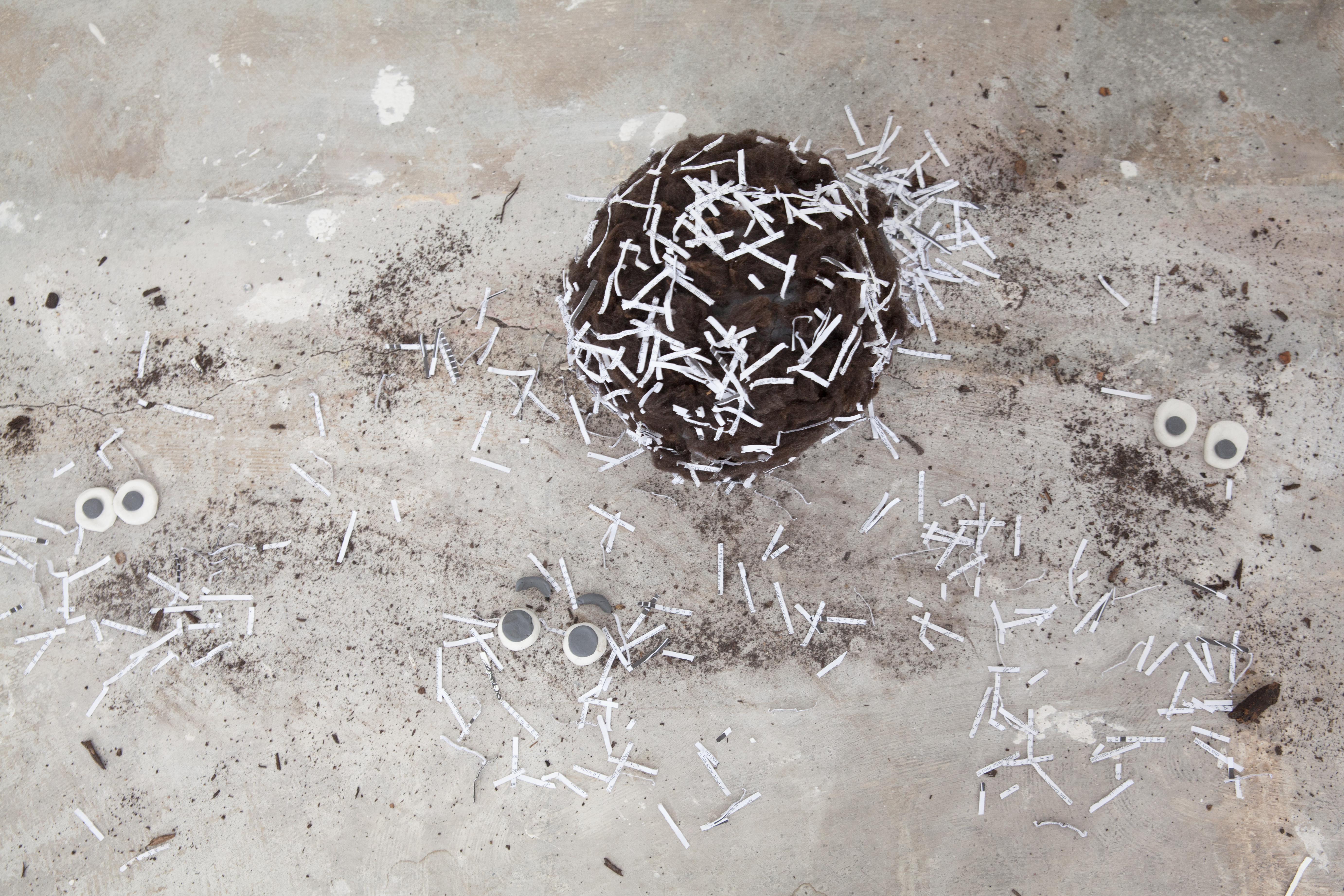Introduction read during the event “Reading by Rindon Johnson and Precious Okoyomon” at KW Institute for Contemporary Art, Berlin on July 12, 2019

“I am making mayonnaise,” declares the feminist theorist María Lugones in her 1994 essay “Purity, Impurity, and Separation,” beckoning her reader into a kitchen in her formative years. With curiosity—with respect—we hover next to the eggs, oil and salt. Lugones goes on,
If I add too much oil at once, the mixture se separa, it separates. I can remember doing the operation as an impatient child, stopping and saying to my mother “Mamá, la mayonesa se separó.” In English, one might say that the mayonnaise curdled. Mayonnaise is an oil-in-water emulsion. As all emulsions, it is unstable. When an emulsion curdles, the ingredients become separate from each other. But that is not altogether an accurate description: rather, they coalesce toward oil or toward water, most of the water becomes separate from most of the oil—it is instead, a matter of different degrees of coalescence. The same with mayonnaise; when it separates you are left with yolky oil and oily yolk.
Curdling, as a metaphor, rejects binary understandings of selfhood and identity formation. Clean-cut, categorical models of self-understanding are toxic legacies of colonization, and produce fragmented, individuated subjects. Curdling, on the other hand, manifests a lack of homogeneity, a multiplicity, and a mestizo complexity. Its outcome is collective ungovernability. For this reason, Lugones praises curdling as “an exercise in impurity.”
Impurity is a concept summoned in the press release for Precious Okoyomon & Hannah Black’s 2017 exhibition I Need Help at Real Fine Arts in New York. “This collaboration,” and again I am quoting from the text itself—for I am cracking eggs, “presents a process of digestion, shitting out, decaying and rebirthing, seeking human-like if not reliably human assistance through playful figuration: teddies, dolls, and creatures both cooked and raw. . . . I Need Help gestures toward a politics or aesthetics based on the underlying and frankly disgusting processes of rot and collapse that have produced the dirt from which everything grows.” On the floor was a series of spherical sculptural tufts of raw wool, strewn with shredded pages from Hannah Black’s book The Situation, a series of opaque interviews addressing some of the social problematics of cultural production that she produced for her solo exhibition at the Chisenhale Gallery, London, the same year.
This collaboration was a process of mutual digestion. The artists consumed, contaminated and regurgitated each other’s work. The exhibition articulated some of the metadynamics of curdling, and reiterated the plausibility of oppositional collective groupings amid and despite the flattening and disenfranchising onslaught of extractivist/neo-imperialist capitalism. It was a hand-whisked mayonnaise in an era branded by Hellmans, Thomy, and airbrushed, blanched artistic institutions—owned, we don’t forget, by those who control the circulation of oil and water.
I’m throwing in a tablespoon of Dijon mustard. I’m adding the oil drop by drop. There is yolky oil and oily yolk and something, here, is thickening.
Impurity is also addressed in Rindon Johnson’s exhibition CIRCUMSCRIBE, currently on view at the Julia Stoschek Collection, Düsseldorf. In one image that has been distributed in conjunction with the exhibition, the artist’s hand, protruding upwards from the lower left corner of the photograph, is shown framed by a circle of light. A circular mirror is installed on the wall close by, showing the shadow produced by the hand, wrist, and lower forearm. This image, which is a 35 mm slide, has a title that is many sentences long. Among these sentences are: “As we were thinking a great deal of ducks all descended from the sky, I would say 100, at least . . . As though they were some sort of reflection of themselves descended into themselves . . . The women say the language you speak poisons your tongue, lips. They say that the language you speak is made up of words that are killing you . . . This is apparent in the space they have not been able to fill with their words. These spaces can be found in the gaps: in the perfect circle, to imprison them and to overthrow.”
I’m interested by the moment in which the shadow produced by fingers of the artist’s hand flows beyond the space of circumscription. This imperfection suggests a resistance to containment, a dynamic that is parallel to the resistance to purity that Lugones asks her readers to fight for alongside her. In his works involving slide projectors, Johnson explores the mechanical temporality of moving images, finding potency in the space between images. These are spaces of murky separation and, importantly, the absence of light. Time curdles, too, in the allusive gaps between words and flickering fields of visibility.
Curdling is a potent literary metaphor that antagonizes static ideas of identity and selfhood as much as it enables projects of poetry and artmaking that thrive in the ambiguous zones of between, within, and beyond. Such projects offer the hope of healing a fragmented social body and upsetting the tidy logics of formalism and modernist self-reflexivity. In dialogue, the poetics of Rindon Johnson and Precious Okoyomon welcome this radiant, destabilizing hope.
These words are an attempt at making mayonnaise: a greasy, indulgent sauce that you might dip Rin and Precious’s work into, if you like. Each will read now for around twenty minutes, with no break in between.